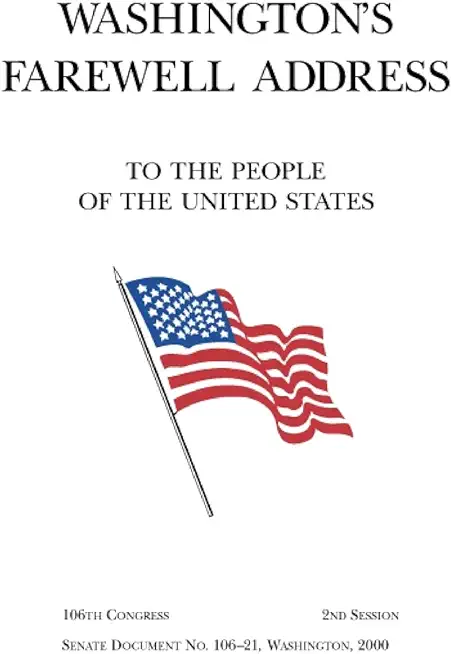
Washington, George
product information
description
ns of the presidency and attacks of political foes, George Washington announced his decision not to seek a third term. With the assistance of Alexander Hamilton and James Madison, Washington composed in a "Farewell Address" his political testament to the nation. Designed to inspire and guide future generations, the address also set forth Washington's defense of his administration's record and embodied a classic statement of Federalist doctrine. The practice of reading the Farewell Address did not immediately become a tradition. The address was first read in regular legislative sessions of the Senate in 1888 and the House in 1899. (The House continued the practice until 1984.) Since 1893 the Senate has observed Washington's birthday by selecting one of its members to read the Farewell Address. The assignment alternates between members of each political party. At the conclusion of each reading, the appointed senator inscribes his or her name and brief remarks in a black, leatherbound book maintained by the secretary of the Senate. The version of the address printed here is taken from the original of the final manuscript in the New York Public Library provided courtesy of The Papers of George Washington. The only changes have been to modernize spelling, capitalization, and punctuation. Washington did not publicly deliver his Farewell Address. It first appeared on September 19, 1796, in the Philadelphia Daily American Advertiser and then in papers around the country.
member goods
No member items were found under this heading.
Return Policy
All sales are final
Shipping
No special shipping considerations available.
Shipping fees determined at checkout.







